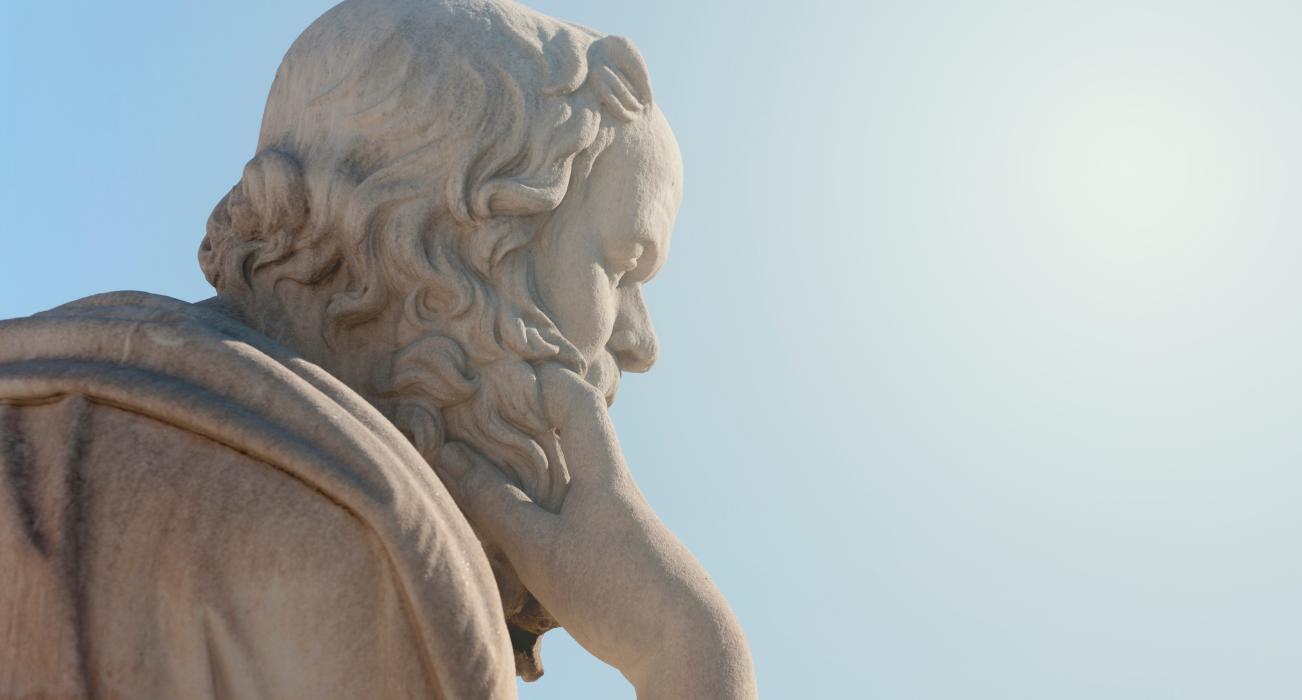Philosophy
Fact File
Philosophy is the study of fundamental problems about the nature of knowledge and reality, and about our moral and political ideas. In universities it is studied in a way which lays considerable emphasis on very precise and careful argument.
Although undergraduates in Cambridge read a wide range of philosophical authors, the main aim of the course is not to impart information about which author said what. Rather the aim is that students acquire the kind of skill in reasoning which will enable them to tackle problems of a philosophical character and to think intelligently about abstract questions generally.
Undergraduates are typically expected to write one short essay each week, and some idea of the philosophical topics studied can be got from a list of typical essay titles:
- Is knowledge the same as justified true belief?
- 'Perception is the source of all our knowledge about the external world.' Is it?
- Must every event have a cause?
- Is the mind nothing but the brain?
- 'We are biological machines.' Does that imply that we lack free will?
- Is reincarnation a logical possibility?
- If God does not exist, does that have any implications for morality?
- Does 'That's good!' just express an emotion or approval?
- Is it everyone's duty to promote happiness?
- What is the relation between justice and equality?
- Does the notion of a human right make sense?
- 'This statement is false.' True or false?
An undergraduate student will have a one-to-one supervision each week. The Faculty offers on average 12 lecture courses each term. In addition first-year students have regular discussion groups and logic classes, and there are regular discussion groups for second year students.
Philosophy is a relatively small subject in the University and, in common with many colleges, Magdalene usually expects to admit one or (occasionally) two students in Philosophy each year. In recent years the University has received roughly five applications for every offer of a Philosophy place made.
Since Philosophy is not usually taught in schools, it is not always easy for students to tell whether they are suited to the subject. If you enjoy marshalling arguments pro and con on general issues, if you enjoy puzzle-solving of various kinds, if you enjoy subjects like maths which emphasise rigorous thought, then you might well find that Philosophy is the right subject for you. But to get a real feel for the character of the subject, you need to read some Philosophy.
Note, however, that is not expected that students will have had any formal teaching in Philosophy before reading the subject at Cambridge, and Part IA of the Philosophy Tripos is taught on the assumption that they have not done so. Students with A-levels in either Arts or Science subjects are equally acceptable.
There are no set subject requirements for Philosophy, although the study of Mathematics at A-level or equivalent is a very useful preparation for logic, which is a compulsory part of the course.
Our minimum offer level is A*AA at A-level or 41-42 in the IB with 7,7,6 at Higher Level.
Interviews and Assessment
All eligible candidates normally have two interviews, one of which is with the Director of Studies in Philosophy and another philosopher; the second is likely to be with two Fellows of the College in other subjects. The purpose of both interviews is to assess aptitude and enthusiasm for Philosophy.
*tbc for 2024-25* Applicants invited for interview will also take a written assessment. The assessment for Philosophy is a Cambridge College-registered assessment. This means you will not need to register for this assessment in advance and the College will provide details directly to you. More information about the assessment (along with some sample questions) is available here. Please note that your performance in the written assessment will not be considered in isolation, but will be taken into account alongside the other elements of your application.

